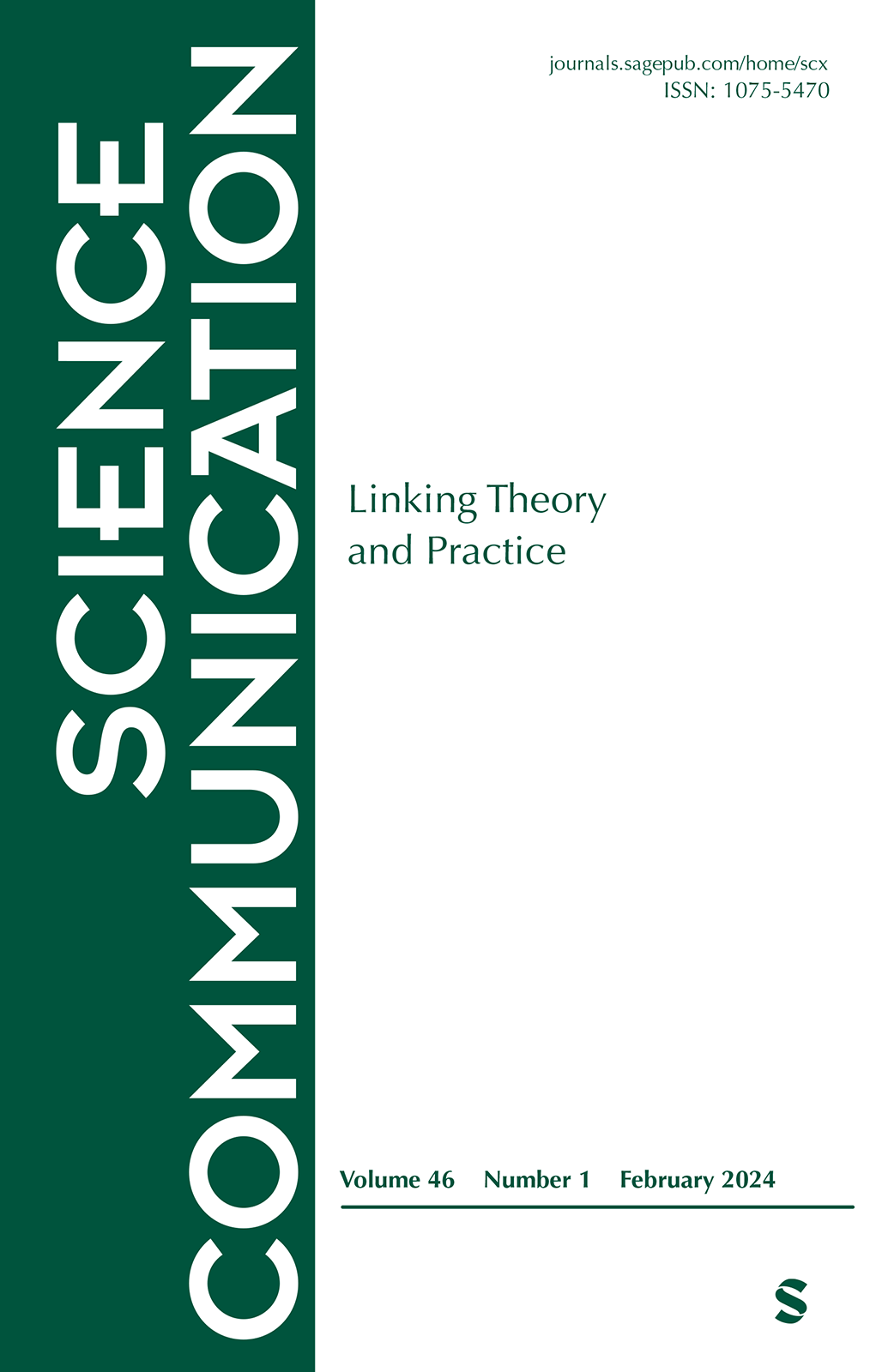Can Communication Theory Advance Research When Environmental Issues Become Wicked? The Case of Microplastics
IF 4.1
1区 文学
Q1 COMMUNICATION
引用次数: 0
Abstract
This commentary reviews current empirical trends focusing on microplastics in the social sciences and discusses how science communication and media research can make meaningful contributions to advancing scientific contributions on social constructions of microplastic pollution. We present our case by defining microplastics as a “wicked” environmental issue, characterized by complexity in many ways. Reviewing scientific literature on microplastics in the social sphere, we reflect on how communication and media studies can contribute relevant insights to advance the empirical knowledge base on microplastic pollution as well as strengthen the theoretical and methodological rigor in these scientific endeavors.当环境问题变得恶劣时,传播理论能推动研究吗?微塑料案例
这篇评论回顾了当前社会科学中关注微塑料的经验趋势,并讨论了科学传播和媒体研究如何为推进微塑料污染社会建设的科学贡献做出有意义的贡献。我们将微塑料定义为一个“邪恶”的环境问题,在许多方面都具有复杂性。回顾社会领域关于微塑料的科学文献,我们反思了传播和媒体研究如何为推进微塑料污染的经验知识库以及加强这些科学努力的理论和方法严谨性贡献相关见解。
本文章由计算机程序翻译,如有差异,请以英文原文为准。
求助全文
约1分钟内获得全文
求助全文
来源期刊

Science Communication
COMMUNICATION-
CiteScore
13.50
自引率
4.40%
发文量
19
期刊介绍:
Science Communication is a prestigious journal that focuses on communication research. It is recognized globally for publishing top-quality manuscripts that demonstrate excellent theoretical frameworks and robust methodology. Our journal embraces a broad definition of science, encompassing not only the natural and physical sciences but also social science, technology, environment, engineering, and health. Regardless of the scientific area, effective communication is always the focal point of our investigations.
Apart from theoretical and methodological rigor, we place great emphasis on the practical implications of scientific communication. Therefore, we expect all submitted manuscripts to address the real-world applications and significance of their research, alongside theoretical considerations.
In summary, Science Communication is an internationally renowned journal dedicated to bridging the gap between science and society. By promoting effective communication in various scientific domains, we strive to engage readers with intriguing research that has tangible implications for the world around us.
 求助内容:
求助内容: 应助结果提醒方式:
应助结果提醒方式:


